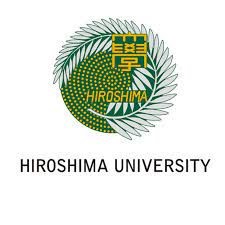Marek Kwiek had a Special Lecture at Hiroshima University (Japan), June 14, 2023.
Venue: Research Institute for Higher Education (RIHE), Hiroshima University, Japan
The 9th HERA Conference, Higher Education in a Changing Global Landscape: Challenges and Prospects, co-organized by RIHE and Education Research Association (HERA).
Special Lecture was about:
“Quantifying the Changing Global Academic Profession: What We Know, What We Do Not, and Why?”
http://hera-research.org/hera-2023-conference/?ckattempt=1

Abstract
The increasing availability of digital data on inputs and outputs in scholarly activities is bound to have powerful impact on academic career research: it allows to measure the academic profession with ever more precision. The pressure to quantify more intensively the research on academic careers is easily understandable in the context of the declining attractiveness of small-scale academic surveys in generally increasingly data-sensitive global academic environment. Higher education research faces huge opportunities if only the field understands how globalization-related opportunities are already used by its competitors for scholarly and policy attention.
Digital data on research funding and its types, productivity by publication type and journal profile, collaboration by its major types, citations, and the various categories of academic mobility – can be explored today at a scale unimaginable in higher education research a decade ago. The point is, however, not to lose its identity which makes the field distinct. The unprecedented opportunities to study science and scientists and to explore the structure and evolution of science (Fortunato et al. 2018) come at a cost to higher education research. New competition to study science, scientists and their institutional settings emerges between the various fields and disciplines, and higher education research becomes one among many. Equipped with mostly traditional tools and generally staying away from big data (and especially from large commercial bibliometric datasets like Scopus and the Web of Science), higher education research may be losing the competition about where data, interpretation and knowledge of the academic sector will be located in the future.
Specifically, the traditional issues examined in higher education research (such as collaboration, publishing, productivity, and mobility patterns) are being increasingly studied in scientometrics and quantitative studies of science and related fields (see e.g. Fortunato et al. 2018; Wang and Barabàsi 2021; Clauset, Larremore and Sinatra 2017; Zeng et al. 2017; Ioannidis 2018; Glänzel, Moed, Schmoch & Thelwall 2020). Social science in general enters a golden age and scientists involved in the above fields use available big data and computational power and skills – as part of the big data revolution in social science research. Studies in academic profession has been focused on similar issues for decades and the field needs to be well aware of what competing fields offer today to academic and policy communities.
The keyword for higher education research in the future is thus complementarity: in the case of academic profession studies, big data can accompany surveys and interviews; and macro-level studies can accompany micro-level studies. I will assess the advantages and disadvantages of traditional vs. new data-intensive approaches based on current global research.
Biography
Professor Marek Kwiek is Director of the Institute for Advanced Studies and UNESCO Chair in Institutional Research and Higher Education Policy, AMU University of Poznan, Poland (www.cpp.amu.edu.pl). His research area is quantitative studies of science, with interests in globalization of science, global academic profession, and international research collaboration. He has published 230 papers and his recent monograph is Changing European Academics: A Comparative Study of Social Stratification, Work Patterns and Research Productivity (Routledge, 2019). His most recent invited seminars include Berkeley, Harvard, Stanford, Oxford, Beijing and Hong Kong. He spent three years at North American universities, including the University of Virginia, UC Berkeley, National Endowment for Democracy in Washington, DC, and McGill University. He was also a Fulbright New Century Scholar in higher education (2007-2008) and a Professorial Visiting Fellow at the UCL Institute of Education, London (2012-2013). Currently (2022-2023), he is a Visiting Researcher at the German Center for Higher Education Research and Science Studies (DZHW), Berlin. A Principal Investigator or country Team Leader in 25 international higher education research projects. An ordinary member of the European Academy of Sciences and Arts (EASA) in Salzburg and Academia Europaea in London. Contact: kwiekm@amu.edu.pl. Twitter: @Marek_Kwiek.


